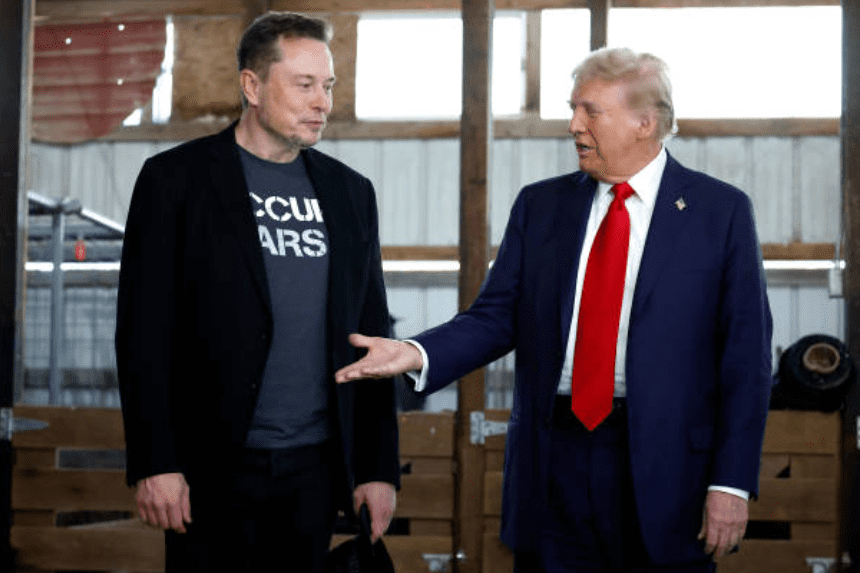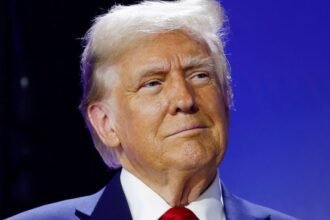The Elon Musk-Trump fallout has become one of the most talked-about political and tech stories in recent weeks. Known for their previous alignment, Musk and Trump have publicly clashed in a way that surprised many observers. Musk has now admitted his posts went too far, while Trump has signaled openness to reconciliation. The developments reveal a complex and evolving relationship between two powerful figures in American business and politics.
- What Triggered the Elon Musk Trump Fallout?
- How Did Musk’s Statements Escalate the Situation?
- Did Elon Musk Regret His Public Comments?
- What Role Did Other Political Figures Play?
- What’s at Stake in the Elon Musk Trump Fallout?
- Is Reconciliation Possible, or Is the Fallout Final?
- Conclusion: What Can We Learn From the Elon Musk Trump Fallout?
What Triggered the Elon Musk Trump Fallout?
The fallout began when Elon Musk, once considered one of President Trump’s closest allies, stepped away from his White House advisory role. He had been leading the Department of Government Efficiency (DOGE), a task force created to reduce federal spending. Musk promised sweeping budget reforms but left the position after just 129 days, citing limited progress and internal roadblocks.
Shortly after his departure, Musk criticized a newly proposed budget bill. He warned that the bill’s tax breaks and defense spending increases would cause a recession later in the year. On social media, he called on Americans to pressure their representatives to block the legislation. These moves widened the Elon Musk-Trump fallout and signaled a deeper philosophical divide between the two.
How Did Musk’s Statements Escalate the Situation?
Musk’s criticisms didn’t stop at economic policy. In a series of now-deleted social media posts, he called the tax bill a “disgusting abomination” and openly challenged Trump’s leadership. One of the most controversial moments came when Musk suggested, without evidence, that Trump might be linked to classified government files involving Jeffrey Epstein.
This unsubstantiated claim brought immediate backlash from the White House, which called it baseless and reckless. President Trump responded by accusing Musk of having “lost his mind.” He even went so far as to threaten the cancellation of federal contracts held by Musk’s companies, including a $38 billion agreement with SpaceX.
As the rhetoric intensified, the Elon Musk Trump fallout moved from policy disagreements into personal territory. Read another article on Musk Slams Trump Tax Bill
Did Elon Musk Regret His Public Comments?
Yes. In a notable shift in tone, Musk recently acknowledged that some of his posts crossed the line. “They went too far,” he wrote on X, the platform he owns. His statement appeared shortly after Trump gave an interview suggesting that reconciliation was possible.
“I think he feels very badly that he said that,” Trump told the New York Post. Although the president admitted to being “a little disappointed,” he added that there were “no hard feelings.” These comments hinted that the feud could be cooling down and that both parties were interested in finding common ground.
What Role Did Other Political Figures Play?
Vice President JD Vance played a key role in attempting to ease tensions. He confirmed that he had spoken with both Trump and Musk, emphasizing that the president did not want a prolonged feud. “While the president is frustrated with Elon, he doesn’t want this to turn into something long-term,” Vance said.
On the other hand, not all voices in Trump’s circle were as forgiving. Former aide Steve Bannon called for Musk’s deportation, citing his South African citizenship. He argued that Musk had betrayed the administration and no longer deserved the influence he held in Washington.
Meanwhile, Republican leaders largely supported the idea of reconciliation, noting Musk’s contributions as a top donor to Trump’s 2024 campaign. Many pointed out that their alliance had brought significant policy advancements, especially in energy, transportation, and tech infrastructure. Read another article on Musk Europe Interference Row
What’s at Stake in the Elon Musk Trump Fallout?
A lot more is at stake than just public reputations. The Elon Musk-Trump fallout threatens to derail billions in federal contracts, tech policy partnerships, and even voter trust. Musk’s companies, including SpaceX and Tesla, benefit from significant government support. These contracts play a crucial role in the U.S. space program and renewable energy goals.
At the same time, Trump’s campaign risks losing a high-profile supporter with massive online influence. Musk commands a global audience and has the power to sway public opinion. If their relationship deteriorates further, it could divide the voter base that both men rely on.
In this light, resolving the Elon Musk-Trump fallout becomes not just a matter of personal pride but also of political strategy and national interest.
Is Reconciliation Possible, or Is the Fallout Final?
While tensions are still high, signs of reconciliation are emerging. Musk has deleted many of his earlier posts, including one that called for Trump’s impeachment. His recent admission of regret shows that he may be ready to rebuild trust.
Trump’s softer tone in recent interviews suggests he also wants to move forward. He made it clear that while he was disappointed, he still values Musk’s contributions and influence. Given the strategic benefits for both, a repaired relationship seems possible — if not inevitable.
What remains uncertain is how the public will react. Many supporters have taken sides, and the feud has already influenced political discourse. However, if both leaders demonstrate maturity and cooperation, they may succeed in reframing the narrative.
Conclusion: What Can We Learn From the Elon Musk Trump Fallout?
The Elon Musk-Trump fallout offers a revealing look into the dynamics of power, influence, and political loyalty. It shows how fast alliances can shift in the high-stakes world of American governance. Yet, it also demonstrates the importance of owning one’s words, managing public perception, and seeking reconciliation when necessary.
As both figures recalibrate their positions, the coming weeks will show whether this rift is temporary or permanent. Either way, the fallout has already impacted public discourse — and possibly future policy.
For observers, this is a reminder that even the most influential leaders must navigate accountability, respect, and diplomacy, especially in the public eye.








